Search
Search Results
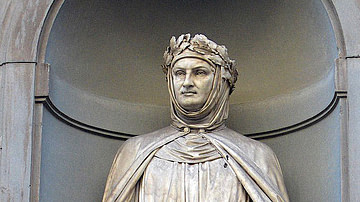
Definition
Giovanni Boccaccio
Giovanni Boccaccio (1313-1375) was an Italian poet, writer, and scholar. His most famous and influential work is the Decameron, completed by 1353, in which his ten characters present 100 tales of everyday life. The book covers all manner...
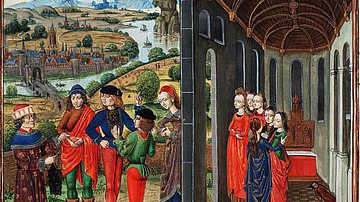
Article
Boccaccio on the Black Death: Text & Commentary
The Black Death is the name given to the plague outbreak in Europe between 1347-1352 CE. The term was only coined after 1800 CE in reference to the black buboes (growths) which erupted in the groin, armpit, and around the ears of those infected...
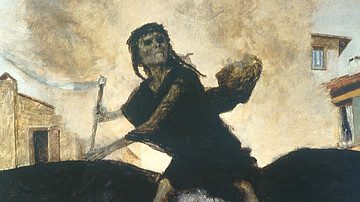
Definition
Black Death
The Black Death was a plague pandemic that devastated medieval Europe from 1347 to 1352. The Black Death killed an estimated 25-30 million people. The disease originated in central Asia and was taken to the Crimea by Mongol warriors and traders...
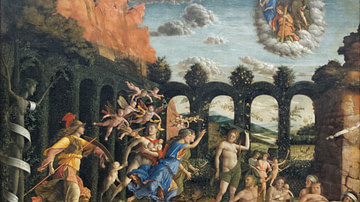
Definition
Renaissance Humanism
Renaissance Humanism was an intellectual movement typified by a revived interest in the classical world and studies which focussed not on religion but on what it is to be human. Its origins went back to 14th-century Italy and such authors...
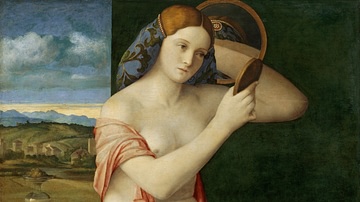
Definition
Giovanni Bellini
Giovanni Bellini (c. 1430-1516 CE) was an Italian Renaissance artist best known for his innovative use of colour, interest in light, and emphasis on brushwork. Today, Giovanni is recognised as the most innovative and influential of the Bellini...
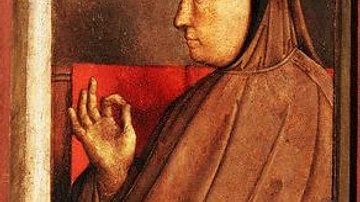
Definition
Petrarch
Petrarch (1304-1374 CE), full name Francesco Petrarca, was an Italian scholar and poet who is credited as one of the founders of the Renaissance movement in art, thought, and literature. Petrarch actively searched for 'lost' ancient manuscripts...
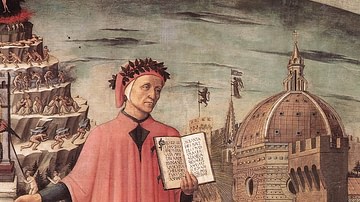
Definition
Dante Alighieri
Dante Alighieri (1265-1321) was an Italian poet and politician most famous for his Divine Comedy (c. 1319) where he descends through Hell, climbs Purgatory, and arrives at the illumination of Paradise. Dante meets many historical characters...
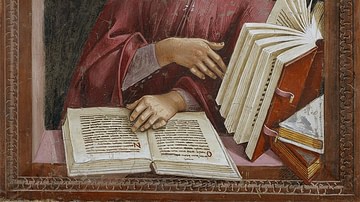
Definition
Medieval Literature
Medieval literature is defined broadly as any work written in Latin or the vernacular between c. 476-1500, including philosophy, religious treatises, legal texts, as well as works of the imagination. More narrowly, however, the term applies...
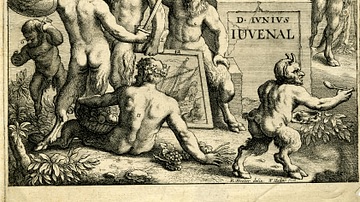
Definition
Juvenal
Decimus Junius Juvenalis (l. c. 55-138 CE), better known as Juvenal, was a Roman satirist. He wrote five books, containing 16 satires, each of which criticized a different element of Roman society, whether it was poor housing, the patron/client...
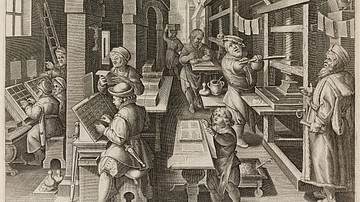
Article
The Printing Revolution in Renaissance Europe
The arrival in Europe of the printing press with moveable metal type in the 1450s CE was an event which had enormous and long-lasting consequences. The German printer Johannes Gutenberg (c. 1398-1468 CE) is widely credited with the innovation...